Creating a Country on the Internet: Sondre Rasch’s Vision for a Borderless World
What if your country wasn’t where you were born, but a place you chose, built entirely online? That’s the vision of Sondre Rasch, CEO of SafetyWing, and it’s not just theory. He’s building it. In this post, we explore how this bold vision is reshaping remote work, global benefits, and the future of citizenship itself.
Read below for a summarized version of our discussion, or check out the full podcast episode above.
A Vision for a Borderless World
Imagine a world where your healthcare, retirement, and identity aren’t tied to where you were born, but to the internet itself. That’s the bold vision that Sondre Rasch, CEO and co-founder of SafetyWing, is working toward: a global digital country with a social safety net for remote workers and digital nomads.
I sat down with Sondre on The Remote Nomad Podcast to unpack this game-changing idea. Spoiler alert: it’s not science fiction, it’s already in motion.
Meet the Man Behind the Mission: Sondre Rasch
Sondre’s journey started in Norway, where he worked in government before co-founding the freelancer platform Superside. There, he saw firsthand how the system fails independent workers who don’t fit neatly into national employment boxes. The realization hit hard: there was no infrastructure to offer benefits to people working globally.
So, Sondre did what any visionary would do: he built the infrastructure himself with a goal to create a Global Social Safety Net.
What Is a "Global Social Safety Net"?
When Sondre talks about a global social safety net, he means replicating the kind of protections you might expect in a place like Norway, from healthcare, income protection, and retirement savings, but making it available to everyone, no matter where they are in the world.
“We’re modeling it off the Norwegian social safety net but building it globally, digitally, on the internet.” — Sondre Rasch
And this isn’t just for digital nomads or remote workers, it’s the beginning of a broader shift toward universal digital citizenship. SafetyWing is the scaffolding for this vision, already serving 60,000+ customers worldwide with insurance tailored for location-independent life.
Why the World Needs an Internet Country
The idea of a country on the internet might sound radical, but it's born from practical realities. If you’re a digital nomad working across borders, chances are you’ve run into frustrating bureaucracy such as visas, taxes, and health insurance gaps.
Sondre points out: the systems we rely on were designed in a different era. They no longer serve a world where people work from Bali for a client in London and get paid via Stripe in the U.S.
“In many practical senses, there are no borders anymore. We can work together, transact, build companies, completely online. But governments haven’t caught up.” — Sondre Rasch
So what is a country, really?
According to Sondre, it’s simply a community solving shared problems. And that’s exactly what the internet-native generation is starting to form. It’s a new kind of nation built around freedom, flexibility, and digital-first infrastructure.
Project Plumia: The Blueprint for the Future
This isn’t a lone-wolf idea. In fact, SafetyWing launched Project Plumia to explore how to actually build this “internet country.” Plumia is now a volunteer-driven initiative bringing together brilliant minds from around the world to:
Define what digital citizenship could look like.
Build a virtual passport and identity system.
Research how to collaborate (not clash) with traditional nations.
While the passport and citizenship elements are still in R&D, Sondre believes it’s possible within the next few years.
Before building a country on the internet, SafetyWing started with the basics: making sure remote workers could get the healthcare and support they needed across borders.
What’s Already Live for Safety Wing: Insurance for the New World
SafetyWing didn’t start with grand ideas, they started small, on purpose.
Their first product? Nomad Insurance, a lightweight travel medical policy tailored for location-independent workers. It’s since grown into a robust suite of offerings:
Nomad Insurance
$40/month
Covers medical emergencies abroad
Includes theft, travel disruptions, and COVID-19 coverage
Remote Health
Full-scale international health insurance
Great for individuals and remote teams
Covers pre-existing conditions, maternity, dental, and more
Remote Doctor (Coming Soon)
24/7 access to virtual doctors worldwide
Prescriptions and referrals from anywhere
Retirement Plans + Income Protection (Coming Soon)
Seamless, borderless savings for remote workers
Keep your benefits as you move countries or switch jobs
This modular approach is smart, and it lets SafetyWing build, test, and scale globally without waiting for the perfect “all-in-one” system.
But Sondre’s vision goes beyond benefits and bureaucracy, and it touches on something deeper: where and how people choose to live.
Remote Work = The Great Resettlement
Sondre sees remote work as more than a trend, it’s a reshaping of human geography.
“We’re seeing this big resettlement. People are moving not where their job is, but where they actually want to live.” — Sondre Rasch
From remote villages in Belize to mountaintop towns in Bulgaria, people are no longer tethered to cities just because that’s where offices are. And Sondre predicts we’ll start seeing entire remote work villages and digital-first communities emerge—some even built around former European castles.
The Mental Shift: From Surviving to Thriving Remotely
For all the perks of remote life, the transition hasn’t been seamless for everyone, especially those pushed into it during the pandemic. Sondre points out that many people struggle initially with:
Self-management (no more office structure)
Lack of social interaction
Mental health challenges
But once people find their rhythm, including building community, creating boundaries, and finding purpose, remote work can drastically improve mental well-being. SafetyWing even offers coaching budgets for employees, highlighting the importance of personal development in a distributed workforce.
“People underestimate how much freedom improves well-being. But once you have it, it’s hard to go back.” — Sondre Rasch
What's Next for SafetyWing
SafetyWing continues to evolve rapidly. Here’s what’s on the roadmap:
Remote Doctor launches in 2025
Retirement Plans by end of this year or early next
Digital Passport + Identity System in development
Ongoing research with Plumia on building infrastructure for global citizenship
It’s no longer a question of if the global digital country will emerge; it’s a matter of who will build it. And Sondre Rasch is leading the charge.
Why This Changes Everything for Remote Workers and Digital Nomads
If you're a digital nomad, remote worker, or globally-minded entrepreneur, this isn’t just a big idea, it’s a blueprint for the future. The systems being built today are quietly laying the groundwork for how we’ll live, work, travel, and connect tomorrow.
In a world where millions of people are working online but still lack access to healthcare or financial systems that move with them, what SafetyWing is building isn't just helpful, it’s necessary.
“The internet is already our shared home. Now it’s time to build the institutions that make it livable.” — Sondre Rasch
This vision of a borderless, digital-first country redefines what it means to belong and opens new doors for those who’ve never fit neatly within traditional systems. It matters for the freedom-seeker in Bali, the freelancer in Lagos, the startup founder in Lisbon.
This isn’t about escaping systems. It’s about upgrading them for a more connected world.
Stay Ahead of the Remote Work Curve
Get weekly tips on landing remote jobs, working from anywhere, and building a life of freedom — straight to your inbox. Join the weekly Nomad News newsletter.
Connect and Access Remote Work Resources
→ Learn more and sign up for SafetyWing Insurance here: https://bit.ly/TRNSafetyWing
→ Follow SafetyWing on Instagram @nomadcities
→ Access tools on building a remote company at www.buildingremotely.com
→ Download the FREE Remote Resume Revamp Checklist here: bit.ly/ResumeRevampChecklist
→ Ready to land a remote job so you can create more freedom and flexibility? Join The Remote Career Accelerator.
→ Follow Remote Career Coach, Kate Smith on Instagram @theremotenomad
Podcast Speakers
Sondre Rasch, Co-founder and CEO of SafetyWing
Sondre Rasch, Co-founder and CEO of SafetyWing
Sondre Rasch is a co-founder and CEO of SafetyWing - building a global social safety net. SafetyWing’s mission is to remove the role of geographical borders as a barrier to equal opportunities and freedom for everyone with a global home country on the internet. Born in Bergen, Norway, he studied economics and computer science, before starting work as a policy advisor for the government of Norway advising on social policies. After getting frustrated with the slow pace of government change, Sondre first founded SuperSide (YC W16), a platform for freelance designers. It was here he discovered the lack of a safety net for online remote workers. Then SafetyWing was born in 2018 after the YC W18, raising 8+mil and serving 60k+ happy clients as today and growing.
Follow at @nomadcities
Kate Smith, Remote Career Coach, Speaker, and Remote Work Advocate
Kate Smith, Remote Career Coach, Speaker, and Remote Work Advocate
Remote Career Coach and industry thought leader, Kate has helped countless professionals break free of the 9-5 and create more freedom in their lives by showing them how to successfully land a remote job. Her expertise has been featured on BBC, Fast Company, CNN, Atlas Obscura, GlassDoor, and many other major publications and podcasts. She was named 'The 100 Most Influential Remote Experts' by remoteweekly.io, and she’s even worked with the country of Estonia, as a digital nomad community representative, to create the world’s first digital nomad visa! After breaking free of her corporate 9-5 job in advertising, she landed a full-time remote job doing online marketing before launching her business. After successfully going remote herself, Kate's now on a mission to help other ambitious professionals create more freedom so they can live life on their terms too!
Follow @theremotenomad




